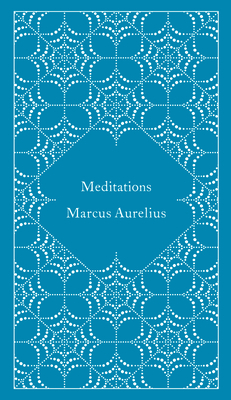

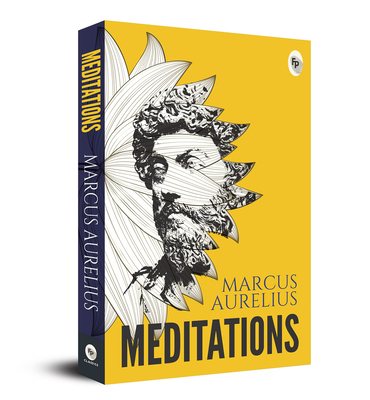
A timeless guide to Stoic philosophy, Meditations by Marcus Aurelius offers invaluable insights into life, virtue, and resilience. This influential work offers a window into the mind of a Stoic philosopher-king as he reflects on the nature of the universe, the meaning of life, and the virtues that lead to a fulfilling existence. This inspirational read is a must-have for anyone seeking personal growth and enlightenment.

A timeless guide to Stoic philosophy, Meditations by Marcus Aurelius offers invaluable insights into life, virtue, and resilience. This influential work offers a window into the mind of a Stoic philosopher-king as he reflects on the nature of the universe, the meaning of life, and the virtues that lead to a fulfilling existence. This inspirational read is a must-have for anyone seeking personal growth and enlightenment.
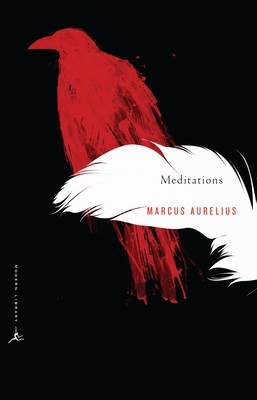




This is a wonderful and important book that anyone interested in Stoicism or in being a better leader should read. --Ryan Holiday
Roman emperor Marcus Aurelius was the final famous Stoic philosopher of the ancient world. The Meditations, his personal journal, survives to this day as one of the most loved self-help and spiritual classics of all time. In How to Think Like a Roman Emperor, cognitive psychotherapist Donald Robertson weaves the life and philosophy of Marcus Aurelius together seamlessly to provide a compelling modern-day guide to the Stoic wisdom followed by countless individuals throughout the centuries as a path to achieving greater fulfillment and emotional resilience. How to Think Like a Roman Emperor takes readers on a transformative journey along with Marcus, following his progress from a young noble at the court of Hadrian--taken under the wing of some of the finest philosophers of his day--through to his reign as emperor of Rome at the height of its power. Robertson shows how Marcus used philosophical doctrines and therapeutic practices to build emotional resilience and endure tremendous adversity, and guides readers through applying the same methods to their own lives. Combining remarkable stories from Marcus's life with insights from modern psychology and the enduring wisdom of his philosophy, How to Think Like a Roman Emperor puts a human face on Stoicism and offers a timeless and essential guide to handling the ethical and psychological challenges we face today.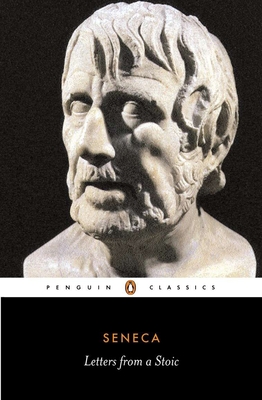


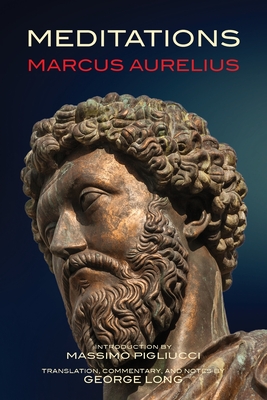



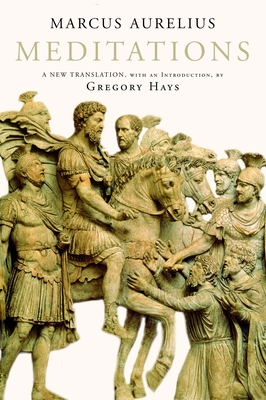


Chiltern Publishing creates the most beautiful editions of the world's finest literature. Your favorite classic titles in a way you have never seen them before; the tactile layers, fine details and beautiful colors of these remarkable covers make these titles feel extra special and will look striking on any shelf.
Meditations, by Roman emperor Marcus Aurelius, is one of the
definitive texts on Stoicism.
In Meditations Taken from A.S.L Farquharson's Translation. Aurelius shares his thoughts about the importance of logic over emotion and helps you to start training your mind to think rationally. By following Stoic teachings, you can live with purpose and die with dignity. Meditations shows how to become more self-disciplined, stop caring what people think, and withstand life's emotional storms.

Now, Penguin brings you the works of the great thinkers, pioneers, radicals and visionaries whose ideas shook civilization, and helped make us who we are. Penguin's Great Ideas series features twelve groundbreaking works by some of history's most prodigious thinkers, and each volume is beautifully packaged with a unique type-drive design that highlights the bookmaker's art. Offering great literature in great packages at great prices, this series is ideal for those readers who want to explore and savor the Great Ideas that have shaped the world.
The Stoic writings of the philosopher Seneca, who lived from c. 5 BC to AD 65, offer powerful insights into the art of living, the importance of reason and morality, and continue to provide profound guidance to many through their eloquence, lucidity and timeless wisdom. This selection of Seneca's orks was taken from the Penguin Classics edition of Dialogues and Letters, translated by C.D.N. Costa, and includes the essays On the Shortness of Life, Consolation to Helvia, and On Tranquility of Mind.

